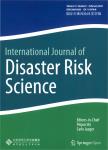Stakeholder Theory, Public Engagement, and Epistemic Injustice: The Case of Covid-19 Vaccine Hesitancy in Scotland's African, Caribbean, and Black Communities
作者机构:Univ Glasgow Adam Smith Business Sch Glasgow G11 6EY Scotland
出 版 物:《INTERNATIONAL JOURNAL OF DISASTER RISK SCIENCE》 (国际灾害风险科学学报(英文版))
年 卷 期:2024年第15卷第4期
页 面:552-564页
核心收录:
学科分类:08[工学] 0708[理学-地球物理学] 0815[工学-水利工程] 0706[理学-大气科学] 0812[工学-计算机科学与技术(可授工学、理学学位)]
基 金:Impact Acceleration Account at the University of Glasgow
主 题:Covid-19 vaccine hesitancy Epistemic injustice Public engagement Scotland Stakeholder theory PARTICIPATION VIDEOGRAPHY MANAGEMENT POWER
摘 要:The adoption of a stakeholder approach to public engagement within the public sector has been extensive. However, there remain critical gaps in the understanding of stakeholder participation arising from hidden disparities that contribute to unequal access to communication channels, information, and hence ultimately knowledge and decision making. The term epistemic injustice has been used to describe such inequality of access and consequently, the outcome that ensues. Epistemic injustice is much overlooked in stakeholder theory. This article shows how epistemic injustice can act as a barrier to effective stakeholder engagement and hence to successful public policy formulation and implementation. We use the case of vaccine hesitancy among Scotland s African, Caribbean, and Black (ACB) communities to illustrate this problem of unequal participation. The study drew on primary data involving 85 participants and secondary data sources from extant literature and explored salient factors shaping barriers to vaccine uptake during the recent pandemic. The findings demonstrate how the failure to grasp epistemic injustice undermines the effectiveness of the stakeholder approach, even with the most well-intentioned efforts. We argue that epistemic injustice is a critical barrier to effective stakeholder approaches.



